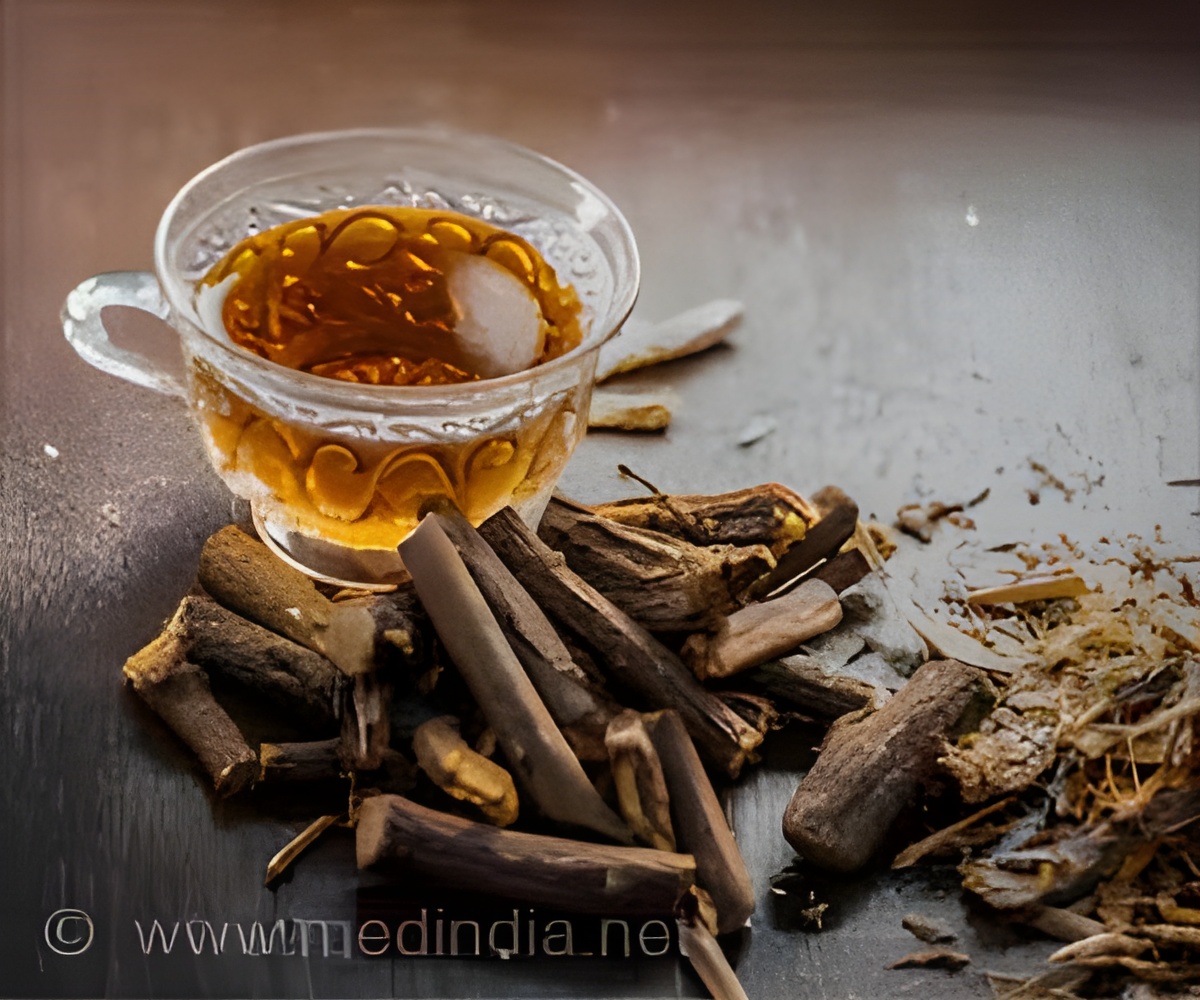
‘High Blood Pressure Risk: Watch out, drinking a glass of licorice tea every day can raise blood pressure (BP), cause water retention, and decrease potassium levels if consumed in excess.’
Read More..Tweet it Now
"Excessive amounts of some herbal products can have harmful side effects," says Dr. Jean-Pierre Falet, Department of Neurology, McGill University, Montréal, Quebec. "Products containing licorice root extract can raise blood pressure, cause water retention and decrease potassium levels if consumed in excess."Read More..
The 84-year-old man visited the emergency department for a high-blood pressure emergency, which was found to be induced by consuming homemade tea made from licorice root. His blood pressure was severely elevated, and he was suffering from a headache, light sensitivity, chest pain, fatigue and fluid retention in the calves.
After admission to hospital and treatment, the patient, who had a history of high blood pressure, told physicians he had been drinking 1 to 2 glasses daily of homemade licorice root extract called ‘erk sous’ for two weeks prior.
Licorice tea is popular in the Middle East and parts of Europe, and erk sous is especially popular in Egypt during Ramadan.
"Given Canada's multicultural population, physicians should consider screening for licorice root intake in patients with difficult-to-control hypertension," says Dr. Falet.
Advertisement














